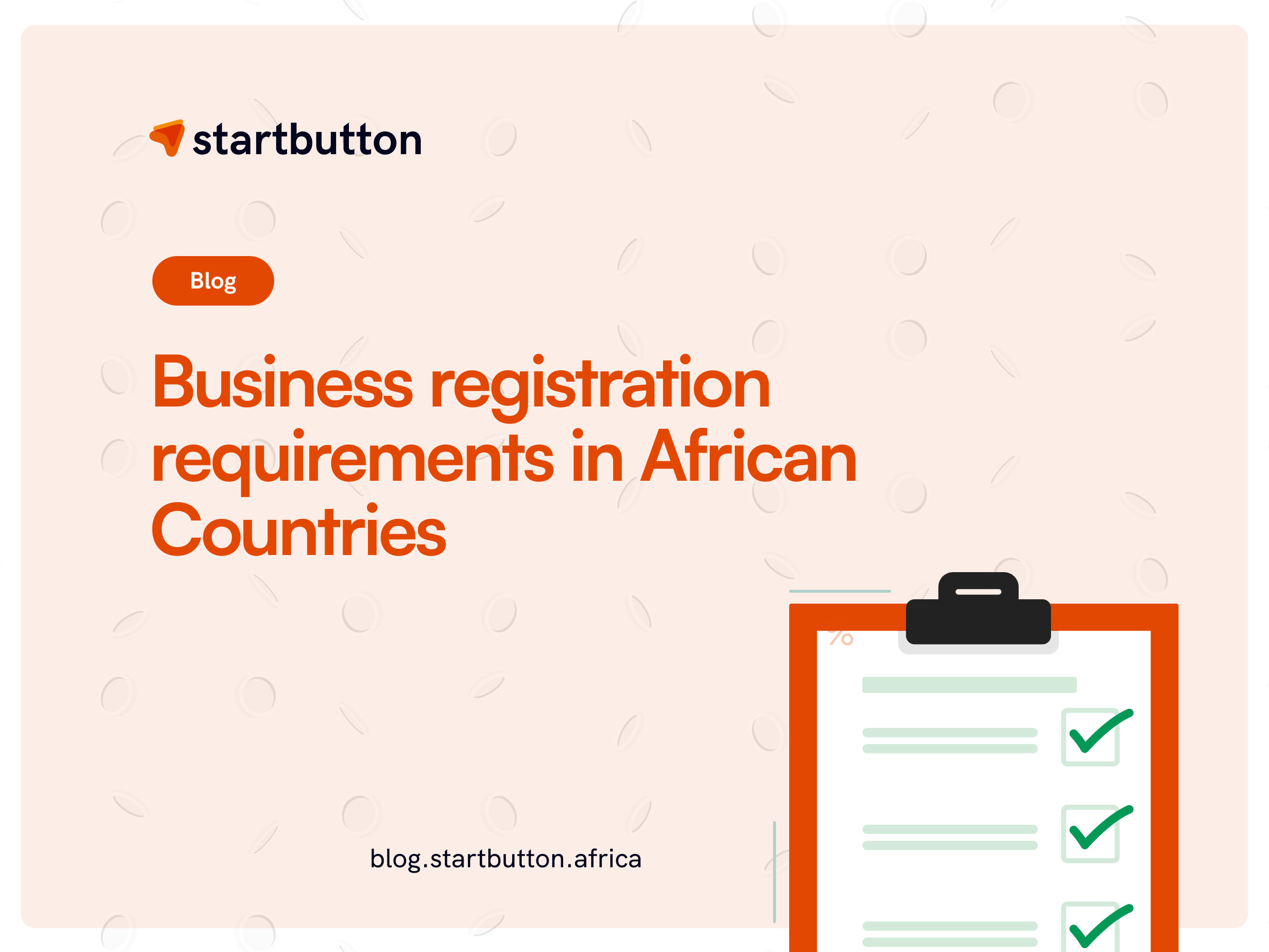Africa is a continent brimming with entrepreneurial spirit and untapped potential. If you’re considering starting a business or expanding to a new country in Africa, understanding the business registration process is crucial. Here’s a detailed breakdown of the general and specific requirements for business registration in five key African countries: Nigeria, Ghana, Rwanda, Kenya, and South Africa.
General Business Registration Requirements in Africa
While each African country has specific rules, most share common requirements for business registration:
- Choosing a Business Structure: Decide whether your business will be a sole proprietorship, partnership, limited liability company (LLC), or another type. Each business structure has its unique registration process and requirements.
- Name Reservation: Pick a unique and relevant name for your business. Most countries offer online name reservation services.
- Registration Documents: These typically include business descriptions, information about directors/owners, and a memorandum of association (for certain structures).
- Fees: Pay the required registration fees, stamp duties, and other governmental charges. Fees vary by country.
Business Registration Requirements According to Countries
Nigeria
Business Name Registration (suitable for sole proprietorships and small businesses):
- Name Reservation: Check and reserve your desired business name. Business owners are usually required to reserve two names.
- Business Nature: Briefly describe your business activities.
- Business Address: Provide the registered address of your business.
- Proprietor Information: Submit names, addresses, and occupations of the proprietors.
- Fees: Pay the filing and stamp duty fees.
Company Registration (suitable for larger businesses):
- Name Availability: Reserve your desired company name.
- Memorandum and Articles of Association: Define the company’s objectives and internal governance rules.
- Share Capital: Specify the authorised share capital and ownership structure.
- Directors and Shareholders Information: Provide details of directors and shareholders.
- Company Secretary: Required for companies with foreign ownership.
- Fees: Pay the stamp duty and filing fees.
Note that businesses in Nigeria can now remit taxes online via Tax Pro-max. Visit the Corporate Affairs Commission (CAC) website for more details on business registration in Nigeria.
Kenya
General Requirements:
- Unique Business Name: Check availability.
- eCitizen Portal Access: Register and use the eCitizen portal for applications.
- Proprietor Information: Provide National ID copies, passport photos, and contact details.
- Business Description: Outline your business activities.
Additional Requirements:
- Business Permit Application Form: Depending on your business type.
- KRA PIN Certificate: Obtain from the Kenya Revenue Authority.
- Unified Business Permit: Often required.
- Social Security Registrations: Register with NHIF and NSSF.
Visit the Kenya Investment Authority website for more details on business registration in Kenya.
Rwanda
General Registration Requirements:
- Unique Business Name: Check availability through the Rwanda Development Board’s (RDB) online portal.
- Company Structure: Decide on your business structure.
- RDB Registration Forms: Complete and submit the relevant forms.
- Identification Documents: Provide IDs for directors and shareholders.
- Memorandum of Association: Outline the company’s objectives and governance.
After Registration:
- Business License: Obtain from the local government.
Visit the Rwanda Development Board Business Registration website for more details on business registration in Rwanda.
Ghana
General Requirements:
- Business Name: Conduct a name search through the Registrar General’s Department (RGD).
- Business Structure: Choose your business structure.
- Registration Forms: Obtain the necessary forms from the RGD.
- Taxpayer Identification Number (TIN): Apply for a TIN for yourself or for each director/shareholder.
Additional Requirements:
- Sole Proprietorship: Complete Form A, pay processing fees, and provide proof of ID.
- Partnership: Complete Form B, pay fees, provide IDs, and submit a partnership agreement.
- Limited Liability Company: Provide extensive documentation, including Forms C and D, company regulations, a memorandum of association, and more.
Visit the Registrar General’s Department (RGD) website for more details on business registration in Ghana.
South Africa
General Requirements:
- Business Name Registration: Check availability through the Companies and Intellectual Property Commission (CIPC).
- CIPC Registration: Complete and submit the registration forms.
Additional Requirements:
- Business Permit: Depending on your industry.
- Tax Registration: Obtain a tax reference number from SARS.
- UIF Registration: Register with the Unemployment Insurance Fund if you have employees.
- Business Bank Account: Open a dedicated bank account.
Visit the Companies and Intellectual Property Commission (CIPC) website for more details on business registration in South Africa.
Differences Between Local and Foreign Incorporators
- Share Capital: Foreign shareholders may trigger higher authorised share capital.
- Bank Accounts: Opening accounts can be tedious with foreign shareholders.
- Residence Permits: Foreign directors may need residence permits.
- Local Citizen Shareholders: Some countries require a local shareholder.
- Ease of Registration: Some countries have electronic registries; others require physical presence.
Expand Your Business With Startbutton Without Local Incorporation
Startbutton helps you expand your business across Africa without needing local incorporation. Our platform offers tailored solutions for market entry, compliance management, and tax remittance, making it easier to navigate regulatory landscapes.
For more details, visit Startbutton’s website or send email us at [email protected]


